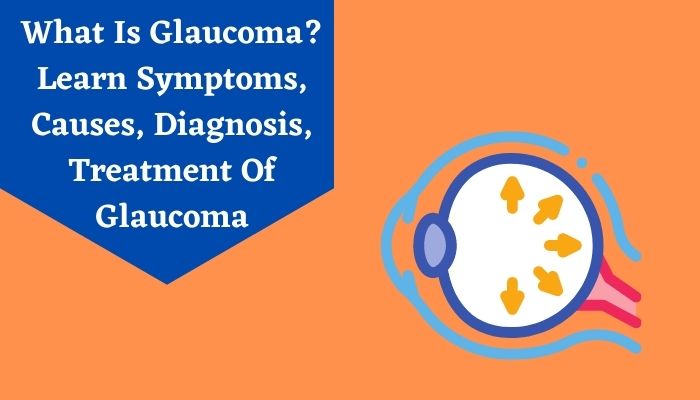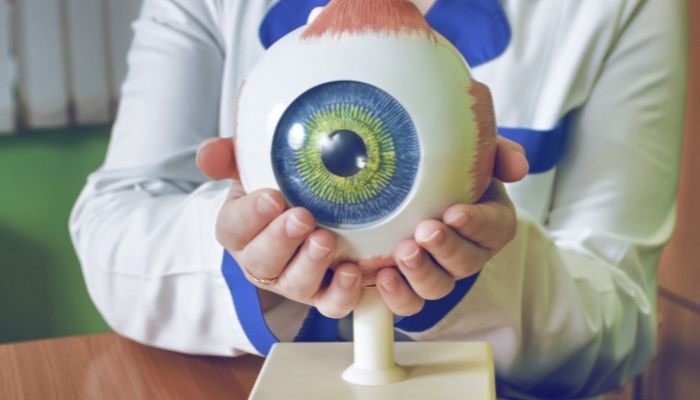Glaucoma is a condition affecting the eye due to damage to the optic nerve. The optic nerve is the main nerve that transfers the images one sees to the brain. So, if this main nerve linking the eye and brain gets damaged it can result in serious eye damage. If left untreated glaucoma can even impart total vision loss. Unfortunately, glaucoma has been identified as the second biggest reason for blindness across the world. Identifying early glaucoma symptoms helps in treating this condition to a great extent.
Let us unravel more about glaucoma and understand all the common glaucoma symptoms and treatment options.
What Is Glaucoma?
Glaucoma, as told before, is one of the main eye disorders that damage the optic nerve, which plays an important role in a person’s vision.The main cause of glaucoma is when there is a build-up of fluid in the front portion of the eye. When this accumulated fluid puts high pressure on the eye, it damages the optic nerve leading to signs of glaucoma. When one experiences symptoms of high eye pressure, it is called Intraocular Pressure or IOP.
Types of Glaucoma
Depending on the signs of glaucoma, this eye disorder can be categorized into five types.1. Normal-Tension Glaucoma: In this type of glaucoma, there are no signs of high eye pressure, but the optic nerve has got damaged. This glaucoma is most likely to take place due to a decrease in the blood supply to the optic nerve due to atherosclerosis or the build-up of plaque in the arteries.
2. Open-Angle Glaucoma: Most people experience glaucoma symptoms that belong to this type of eye disorder. Here, the drainage angle is not blocked but the trabecular meshwork is somewhat blocked which leads to high pressure in the eye which damages the optic nerve.
3. Angle Closure Glaucoma: Also known as closed-angle glaucoma, this type of disorder takes place due to the bulging forward of the iris to block the drainage angle. People with a narrow drainage eye angle are more prone to this type of glaucoma.
4. Pigmentary Glaucoma: In this fourth type of glaucoma, there is a build-up of pigment granules from the iris in the drainage channels. This build-up blocks the fluid that wants to drain from your eyes.
5. Glaucoma in Children: Unfortunately, glaucoma is an eye disorder that is also found in infants and children. Some babies are born with glaucoma due to damage to the optic nerve in the mother’s womb.
Common Signs of Glaucoma
- Pain in the eyes
- Redness in the eyes
- Blurred vision
- Severe headache
- Nausea
- Vomiting
- Hallucination around lights
- Rainbow-colored rings around lights
- Patchy blind spots in central or side vision
- Tunnel vision
Common Causes of Glaucoma
Let us now disclose the different causes of glaucoma or who are most likely to suffer from this eye disorder.- High Blood Pressure
- Previous Eye Surgery or Injury
- Family History of Glaucoma
- Hypertension or High Blood Pressure
- High Internal Eye Pressure
- Prolonged Use of Corticosteroids
- Myopia or Near-sightedness
- Hyperopia or Far-sightedness
- Thin Corneas
- Being Asian, African, or Hispanic
- Diabetes
- Old Age
Diagnosis of Diagnose Glaucoma
Following are the painless eye tests that your ophthalmologist may do to diagnose glaucoma:- Dilated eye check-up
- OCT or Optical Coherence Tomography
- Tonometer or Ocular Pressure Test
- Slit-lamp Exam
- Visual acuity test
- Visual field test
- Pachymetry
- Gonioscopy
- Eye pressure
- The thickness of your cornea
- Measure your Optic nerve
- Detect your Optic nerve damage
- Eye drainage angle
- Peripheral vision
Treatment Options of Glaucoma
1. Prescribed Medicines: Initial stage of glaucoma can be controlled and treated with the help of medicines prescribed by an ophthalmologist. Medicines prescribed for people experiencing glaucoma symptoms are in the form of eye drops. The aim is to decrease the eye pressure with the prescribed eye drops and to reduce the amount of fluid accumulated at the drainage angle.Common side effects experienced using eye drops for glaucoma are:
- Itching sensation
- Redness in eyes
- Dry mouth
- Heartbeat changes
- Growth of eyelashes
- Eye color change
- Change in breathing pattern
- Change in the energy levels
2. Laser Surgery: If there is no improvement after using the eye drops because you are suffering from severe glaucoma, then your doctor may suggest you undergo laser surgery. Laser surgery can be conducted in two ways to treat glaucoma.
3. Iridotomy: People suffering from angle-closure glaucoma must go for iridotomy. During this surgical procedure, the eye surgeon will make small holes in your eye iris using a laser to enable the fluid to flow to the drainage angle.
4. Trabeculoplasty: People suffering from open-angle glaucoma should opt for trabeculoplasty instead of medications. In this surgery, the eye surgeon aims to correct the drainage angle with the help of a laser.




